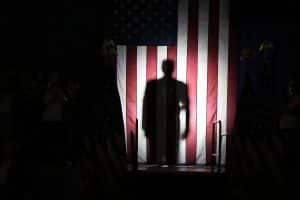Written by Jonathan Friedman
Over the last year and a half, young people and educators have witnessed a growing campaign to silence voices in our nation’s schools. Districts across the country are banning books with unprecedented frequency, directly undermining students’ freedom to learn. This movement has gained momentum from local and national advocacy groups, many with conservative leanings, as well as political pressure from elected officials.
PEN America, where I direct free expression and education programs, recently published research documenting the scope of this threat in stark detail. During the 2021 to 2022 school year—from July 2021 through June 2022—nearly 140 school districts in 32 states issued more than 2,500 book bans.
These bans overwhelmingly targeted books that feature protagonists of color, explore issues of race and racism, tell stories with LGBTQ+ characters or contain sexual content of any kind. This is blatant suppression, driven by long-held prejudices toward the LGBTQ+ community and extremist Christian attitudes toward sexuality, morality and American culture. The movement to ban books has also been propelled by backlash to the The New York Times’ “1619 Project” and anti-“CRT” sentiment, as well as from opposition to masking and the COVID-19 pandemic response.
Demands to ban books in schools are not new. But what is new is the level of organization and coordination driving it. We are now seeing a wide network of advocacy organizations assemble long listsof titles to be purged from school shelves and share strategies on how to embarrass, intimidate or pressure school administrators into appeasing their demands.
Our research found at least fifty of these groups working locally and nationally to advocate for book bans—some of which already have hundreds of independent chapters, like Moms For Liberty, a conservative “parental rights” organization that was founded in 2021.
These groups pressure schools and districts to circumvent established guidelines for determining what books should be used in curricula or available in school libraries. They use the rhetoric of parental rights to trump the expertise of educators and librarians, while notably ignoring the differing views of other parents and students.
Fewer than 4 percent of the book bans we identified were the result of detailed objections and transparent, considered processes that allowed input and deliberation among professionals and parents together—or even mandated that books be read before they are banned. Writer Dr. Farah Jasmine Griffin remarked at a recent PEN event, “People who read books don’t ban them.”
In Walton, Florida, when the superintendent decided to yank two dozen books off school library shelves, for example, he told the press, “I haven’t read one paragraph of the books at this time.” His decision to pull those titles was done unilaterally, based on a list emailed to him by one of these advocacy groups. Those groups somehow held more sway than the views of teachers, librarians and parents who disagreed with the bans in the district.
Alarming as these bans are, they represent just one part of a broader political and cultural campaign to censor what is taught in schools. We’re in the midst of an assault on public education that rivals the reactionary panics of the Red Scare and the McCarthy era. This “Ed Scare” is not just focused on rooting out Communism, but on censoring a broad range of topics with little regard for students’ freedom to read, learn and think.
This is evident in the rise and spread of educational gag orders—bills and laws aimed at restricting teaching and learning—which have targeted all the same topics, and are encroaching not only on K-12 schools, but also on what can be taught in colleges and universities.
And the clashes show no signs of abating, especially as we head into a midterm election season where candidates are running on these kinds of policies. Taken together, the battles playing out in our schools imperil the principle of free expression enshrined in the First Amendment. Moreover, bans on books representing historically marginalized identities send students an especially pernicious message about what stories—and what identities—belong.
Fighting back against these coordinated attempts is essential to protecting open inquiry in education, which equips students with the tools they need to thrive in our diverse society. We all ought to be worried if public schools are forced to prioritize fear of controversy and political reprisal over learning.
This column was produced by Progressive Perspectives, which is run by The Progressive magazine and distributed by Tribune News Service.
Jonathan Friedman is director of free expression and education programs at PEN America and the lead author of Banned in the USA: The Growing Movement to Censor Books in Schools.






